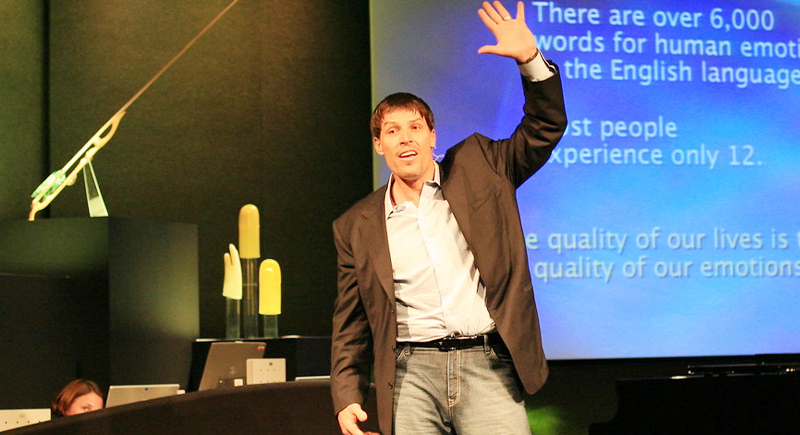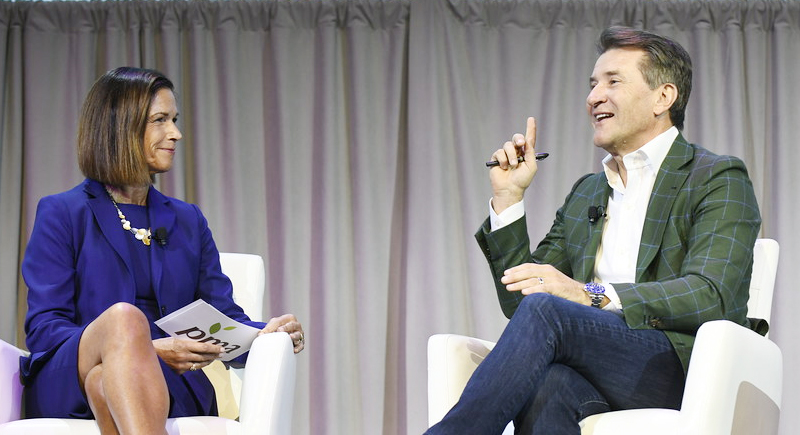What Robert Herjavec Learned From Losing Everything (And How He Got It Back)
Robert Herjavec, a cybersecurity entrepreneur who sold his first company to AT&T for $30 million, became widely known as one of the original investors on “Shark Tank.” Born in Croatia and raised in Canada, he went from delivering newspapers to founding Herjavec Group, one of North America’s top cybersecurity firms. But behind the polished success story, he suffered a breakdown in his personal life. His recovery didn’t hinge on luck or cliché motivation, but on redefining what progress and meaning looked like after loss.
These takeaways offer real insight for anyone trying to build something lasting, especially after it falls apart.
Public Wins Didn’t Prevent Private Breakdowns

Credit: Wikimedia Commons
In 2014, everything looked stable on the outside. He had money, visibility, and business credibility. But during a painful divorce, he strayed and lost direction. Emotional collapse followed. The experience exposed how little prestige and recognition could offer when life actually cracked.
Early Poverty Taught Him Not to Internalize Lack

Credit: freepik
After arriving in Canada as a child refugee, he lived with his parents in a basement apartment. He didn’t speak English and wore secondhand clothes. Even then, he refused to believe he was poor—he just saw the situation as temporary, because struggles didn’t define who he was.
Faith Re-Emerged Via Work, Not Belief Alone

Credit: pexels
At his lowest point, a friend urged Herjavec to serve at a Seattle homeless mission. He reluctantly agreed. The experience helped him regain his footing and direction. Faith returned slowly by showing up for other people when his own life had lost balance.
Setbacks Revealed What Success Often Hides

Credit: Canva
Rejections, firings, and failed bets filled the businessman’s early career. But each one pointed out a gap he hadn’t seen. When he got fired from his job selling IBM systems, he used it as motivation to start BRAK Systems out of his basement. He realised that trying to avoid failure delayed growth, but learning from it accelerated everything.
Learning to Say No Protected His Focus

Credit: Canva
While he was trying to find his footing in the corporate world, Herjavec said yes to every opportunity, every meeting, every favor, every project that looked remotely promising. That made him accessible but also distracted. He started saying no to anything that didn’t directly align with his goals or values.
Joy Was Non-Negotiable After Burnout

Credit: Getty Images
Herjavec used to power through everything, even when it left him drained. That’s when he started paying attention to what really made the work feel good. He shaped his schedule around what gave him energy instead of just chasing output. That change went a long way in helping him recover.
Sales Experience Built Long-Term Leverage

Credit: Getty Images
A job at Harry Rosen may not have been glamorous, but it taught him how to observe people, ask better questions, and build trust. He took the job just to afford a discounted suit. What he didn’t expect was that the company’s founder would teach employees how to sell to high-net-worth clients.
Hard Work Without Leverage Stalls Growth

Credit: Getty Images
His father worked factory shifts for decades, but never accumulated wealth, and that pattern shaped Herjavec’s thinking. He saw firsthand that relentless effort without leverage would lead to a dead end. Eventually, he stopped asking how hard he was working and began asking what that work was actually producing.
Redirecting Energy Outward Modified Results

Credit: flickr
During a Tony Robbins seminar, the cybersecurity expert understood that the problem wasn’t his ambition—it was where he aimed it. Until then, most of his energy had gone into hitting personal milestones. After that, he decided to put in the same intensity into his team.
Curiosity Replaced Pressure as His Motivator

Credit: flickr
It was after selling his first company and stepping back that the shift began. The pressure to win eased, and—like Herjavec has described in interviews—curiosity took over. He looked beyond tech, into industries that had nothing to do with his background. The goal was to keep learning and keep his mind sharp.
Possessions Failed to Deliver Lasting Satisfaction

Credit: pexels
Buying a Ferrari felt like a big moment—until his neighbor casually opened a garage filled with Porsches. The myth he’d attached to that purchase vanished instantly. Herjavec realized that what he wanted wasn’t the car itself, but what he thought it symbolized. That changed the way he viewed all material success.
Mentorship Rewired His Sense of Scale

Credit: Getty Images
At 25, Herjavec worked under Warren Avis, who challenged his entire sales approach. Avis pointed to a hot dog vendor outside their office and said, “You’re acting like that guy—pushing product. If you want to build something, be the one supplying all the vendors.” That altered how the business thought about scale and ownership.
Chronic Work Habits Mask Deeper Issues

Credit: Getty Images
Productivity became a shield. He stayed busy to avoid discomfort, but it didn’t solve anything. Pulling back made the real problems unavoidable. For the first time in years, he had to sit with difficult questions. And finally, the TV personality was able to rebuild by doing less, on purpose.
Recognition Stopped Mattering as Much as Results

Credit: Getty Images
In the beginning, external attention made Herjavec think he was making progress. It made the effort feel visible. But over time, that pull faded. He put weight on things that didn’t get public reactions—better hiring, stronger systems, and more reliable teams. The results lasted longer and didn’t depend on outside approval.
Action Became the Only Reliable Starting Point

Credit: Getty Images
Herjavec didn’t wait for motivation to catch up. He kept moving—calls, meetings, workouts—long before things felt stable. Small actions became a part of his routine and gradually pushed the doubt aside. That habit of doing the work, even without guarantees, shaped how he created companies later on.